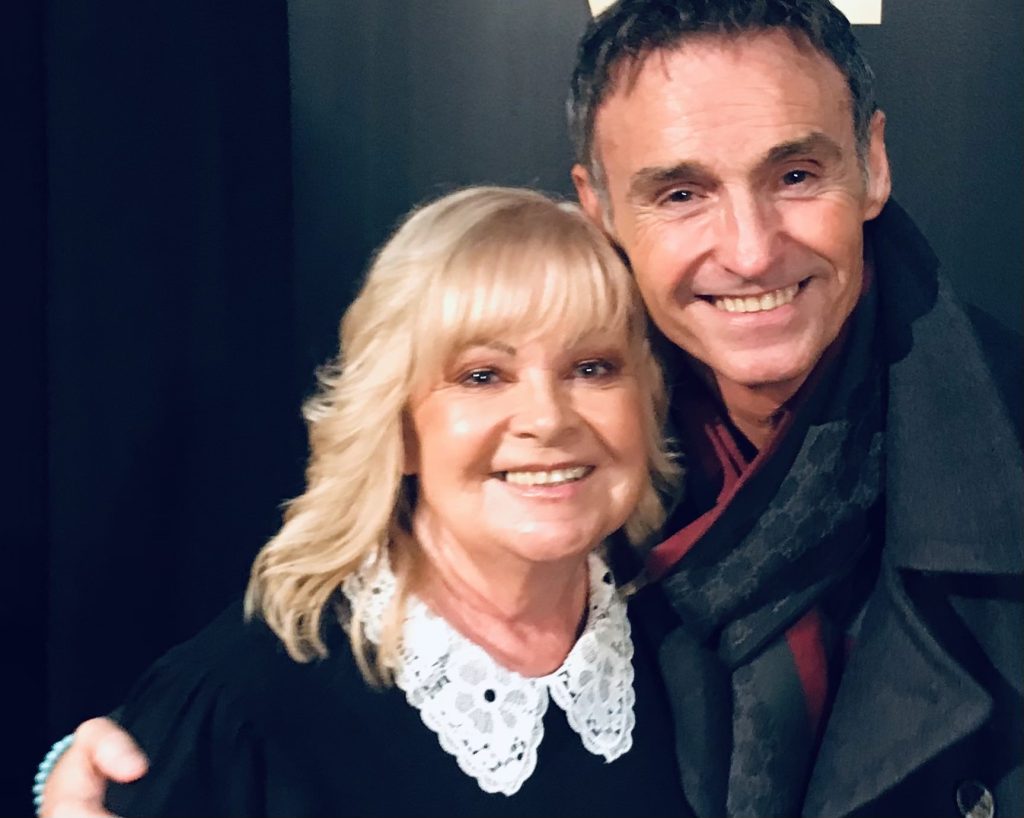Sandie can see clearly again after surgery at SpaMedica leaves her with “crystal clear” vision

71-year-old Sandie Edwards, who lives in Winchester, Hampshire, underwent surgery as an NHS patient at the SpaMedica hospital in Southampton and says she can’t wait to see her heartthrob, Marti Pellow, again without having to squint at him!
Sandie had worn glasses for a couple of years when she was told by her optician that she was starting to develop cataracts. Each time she went back for a checkup, she was told they were getting worse and, earlier this year, her local Boots optician revealed she had ‘ripe’ cataracts which needed urgent treatment.
“I knew they were bad as friends would wave at me in the street and I couldn’t even recognise them,” she says. “The optician said he would refer me to SpaMedica and, to be honest, I was expecting a two-year wait. However, the team called the following week and I was delighted to be offered a consultation just a few days later.”
Sandie does admit to dreading the initial appointment. “I was very scared,” she explains. “I have always had a phobia about my eyes. Even when I had contact lenses, it took me five lessons to finally master putting them in and I couldn’t wear them for longer than a few hours.”
Sandie was offered her first operation three days later and says she was relieved because she didn’t have to wait weeks to work herself up. “My appointment was at 1.30pm and I was nervous all morning,” she says. “However, SpaMedica was amazing and every single person I came across was an absolute delight and really put me at ease.
“I expected to be really uptight, but by the time I had all my drops put in I was actually quite calm. I went into the operating room, laid down and the surgeon talked me through every step. My fists were really clenched at first but by the time the surgery was finished, I had completely relaxed.
“Afterwards, my eye was really cloudy – like looking through a bright fog – but the nurse explained the aftercare and drops and each day it got better. After four days it wasn’t at all foggy and I was amazed by how bright and colourful the world looked.”
The second operation took place in early October and Sandie wasn’t nervous at all. “This time, when I opened my eye the next day, my vision was crystal clear. In fact, it was perfect,” she says.
Sandie can now get back to doing the things she loves, which include spending time with her five grandchildren and two-year-old great-grandchild. “I love my garden, especially in the summertime, and I’m a keen decorator too. At the beginning of the year, I painted my doors in a shade called ‘brilliant white’ and I was disappointed when it came out a lot more muted than I expected. After my surgery, I realised it really was brilliant white, it was just my cataracts!”
“One of the hardest things for me during recovery was that I couldn’t wear my mascara for a week, so I avoided going anywhere too public, but now I’m back out in the world. I’ve been to three theatre shows and have not had to squint once! I can’t wait to see my heart throb, Marti Pellow, again and I’m looking forward to an Elvis Presley tribute act too!
“The surgery has been life-changing for me, and everyone keeps telling me my eyes look sparkly and bright. I don’t have to wear my glasses or contact lenses anymore and I’m so appreciative to see all the autumn colours. I now have a true appreciation of how valuable your eyesight really is.”
Southampton Hospital Manager, Clive Shepherd-Wraight, said: “It’s wonderful to hear that Sandie is seeing clearly again after her cataract surgery and I’m so glad our team were able to put her at ease. We know the thought of having eye surgery can be daunting for many people, but lots of our patients are pleasantly surprised by how quick and painless the operation is. I would encourage anyone who has concerns about their vision or eye health to book an appointment with their local optometrist.”
Cataracts are common in adults – about 30% of adults aged 65+ will have a cataract that is affecting their vision and requires treatment.
Cataracts Symptoms
Patients may experience one or more of the following symptoms if they have cataracts:
• Blurred vision
• Difficulty driving at night
• Difficulty watching television and reading
• Being dazzled by sunlight and/or bright lights such as the headlights of an oncoming car
• Fading of colours
• Frequent changes to their spectacle or contact lens prescription
Patients who notice any changes to their vision should book an appointment with their optician, who will perform a thorough eye check and refer them for treatment if needed. In England, patients can choose which NHS provider they have cataract surgery with.